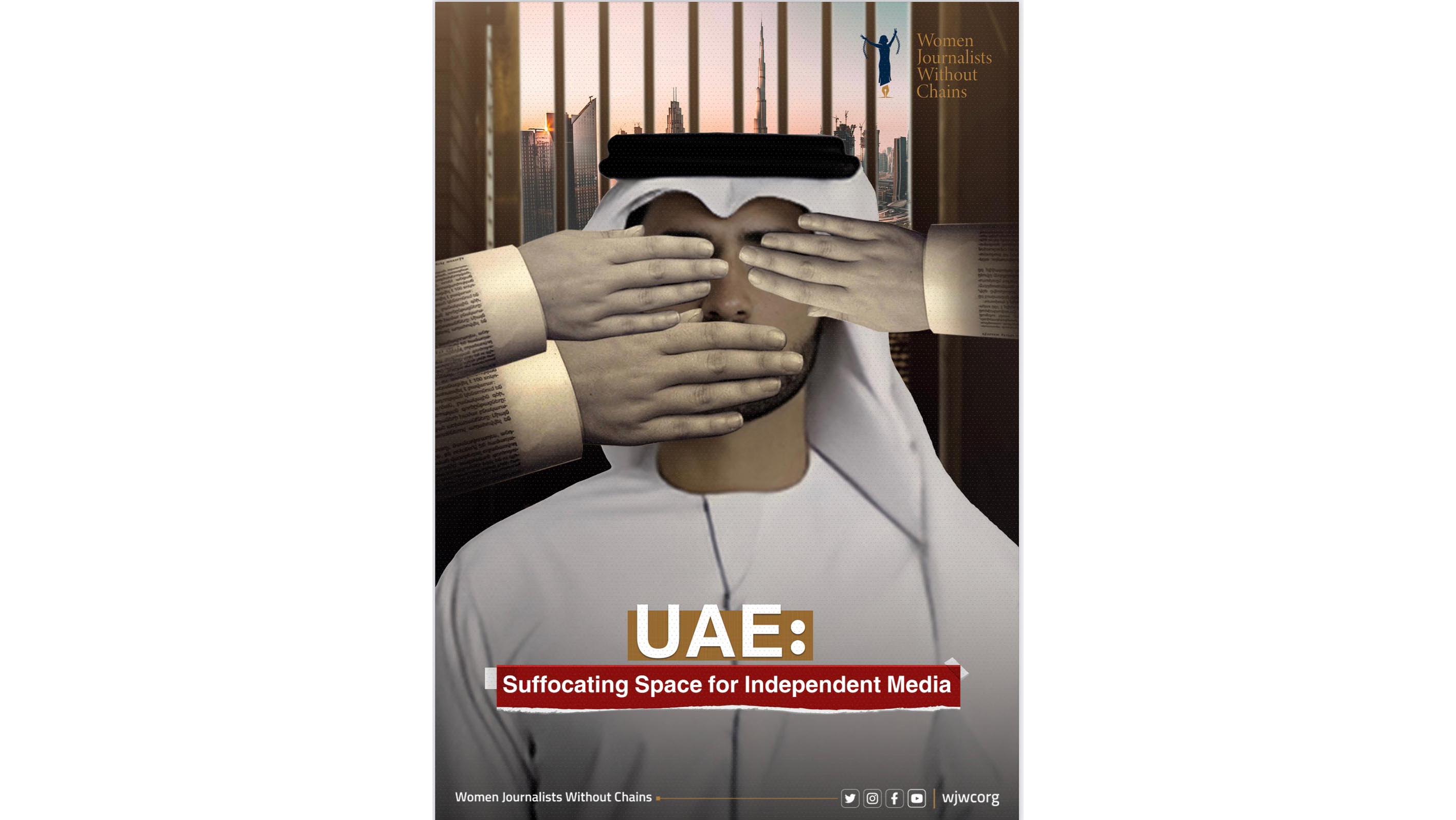Wjwc News

UAE: Suffocating Space for Independent Media
Despite the United Arab Emirates claims of progress and modernity, a recent report exposes authoritarian practices reminiscent of medieval times towards journalists, shedding light on the extensive control exerted by the security apparatus and government, imposing severe restrictions that impede press freedom.
Delving into the realm of independent journalism, legal complexities, internet censorship, and treatment of foreign journalists, the report unveils a distressing web of challenges and limitations. Beneath the glossy surface, it reveals a troubling nexus of control wielded by the security apparatus and government, stifling the essence of a free press and casting a shadow over journalistic endeavors.
The report uncovers that the majority of newspapers and media outlets in the UAE are state-owned or controlled, with strict prohibitions on any media or online publications that criticize the government or address human rights issues in the country. This reflects a suppression of dissenting voices and a climate where criticizing the executive authority, including government officials, carries severe consequences and legal repercussions.
Not only do the authorities criminalize the dissemination of information contradicting the government's narrative and criticism of countries with political ties, even if involving journalists' own nations, but they also enforce strict surveillance, lack protective laws for sources, and penalize sources as criminals with potential lifelong imprisonment.
Furthermore, collaboration with journalists, including contact with human rights organizations, is met with punishment by these authorities. The report denounces the ongoing criminalization of independent unions or organizations dedicated to defending journalists while expressing concerns about the negative role played by the Emirates Journalists Association in advocating for journalists. Additionally, the UAE authorities reject legislation concerning freedom of access to government information and penalize journalists who inquire about sensitive topics.
Over the years, the United Arab Emirates has implemented legislation, such as the strict 1980 Press and Publications Law, alongside other statutes like the 2021 Crimes and Punishments Law and the 2021 Anti-Rumors and Cybercrimes Law, carrying severe penalties, including death, to significantly restrict journalistic activities and target independent journalism. The report provides an insightful analysis of the ambiguous provisions within these repressive laws and their potential exploitation against journalists.
Women Journalists Without Chains criticizes the UAE's utilization of telecommunications and the internet to exert special control over journalists, including female journalists, and domestic media outlets, highlighting the employment of surveillance programs by Abu Dhabi to spy on journalists both within and outside the country.
To download the report, click here
